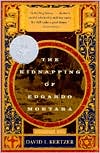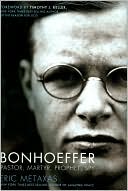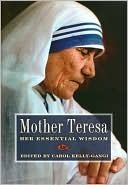The Kidnapping of Edgardo Mortara
Search in google:
National Book Award FinalistBologna: nightfall, June 1858. A knock sounds at the door of the Jewish merchant Momolo Mortara. Two officers of the Inquisition bust inside and seize Mortara's six-year-old son, Edgardo. As the boy is wrenched from his father's arms, his mother collapses. The reason for his abduction: the boy had been secretly "baptized" by a family servant. According to papal law, the child is therefore a Catholic who can be taken from his family and delivered to a special monastery where his conversion will be completed. With this terrifying scene, prize-winning historian David I. Kertzer begins the true story of how one boy's kidnapping became a pivotal event in the collapse of the Vatican as a secular power. The book evokes the anguish of a modest merchant's family, the rhythms of daily life in a Jewish ghetto, and also explores, through the revolutionary campaigns of Mazzini and Garibaldi and such personages as Napoleon III, the emergence of Italy as a modern national state. Moving and informative, the Kidnapping of Edgardo Mortara reads as both a historical thriller and an authoritative analysis of how a single human tragedy changed the course of history. Publishers Weekly The few resident Jews in the declining temporal papacy under Pius IX in 1858 were outraged but not surprised when a six-year-old boy in Bologna, Edgardo Mortara, was seized by the police and removed from his parents' home. The Vatican's justification for the abduction was that Edgardo had been secretly baptized by a maid who feared he might die, and church dogma taught that a Christian child could not be raised by Jews. Despite protests that erupted as far away as the U.S., Pius IX would not relinquish the child, called him his son and arranged for his education as a priest. As Kertzer (Sacrificed for Honor) observes, committed Catholics saw religious matters with far different lenses than did the helpless Jewish minority, whose presence in Italy nevertheless predated Christianity. The theocratic papal state resisted all entreaties to relinquish the boy, creating pressures not only to liberate Edgardo, but to liberate all Italy from reactionary political regimes. When "Pio Edgardo" was 15 and a celebrity, Pius IX wrote to him, "You are very dear to me, my little son, for I acquired you for Jesus Christ at a high price." The price would be the acceleration of Italian unification and the collapse of the Vatican's political power in Italy. Kertzer's compelling narrative, purportedly the first full account of the affair to be published in English, is a dramatic sampling of a fanaticism and its pain emerging in religious guises. Edgardo, who eventually became a monk, died at 88 in 1940. (May)








